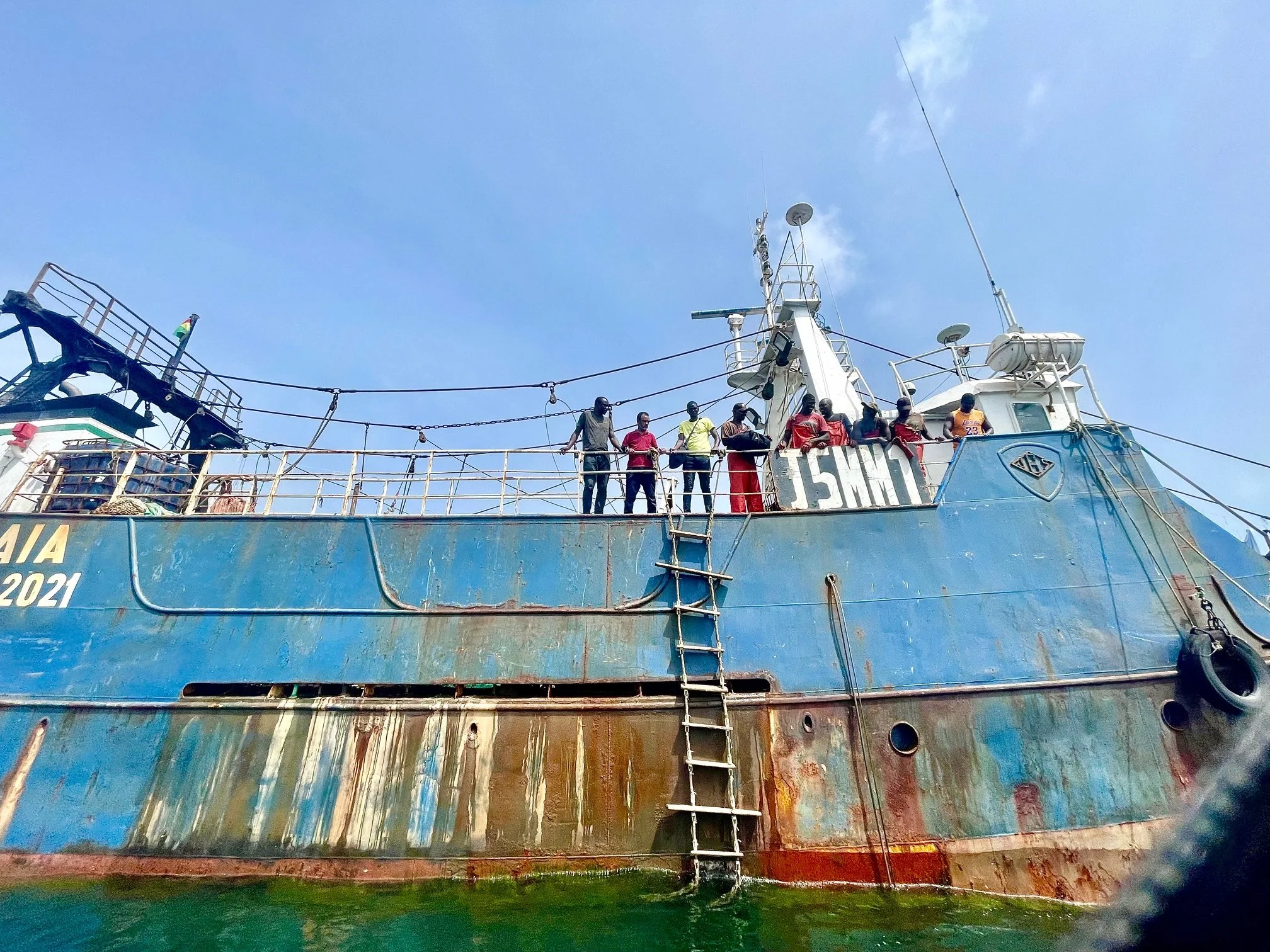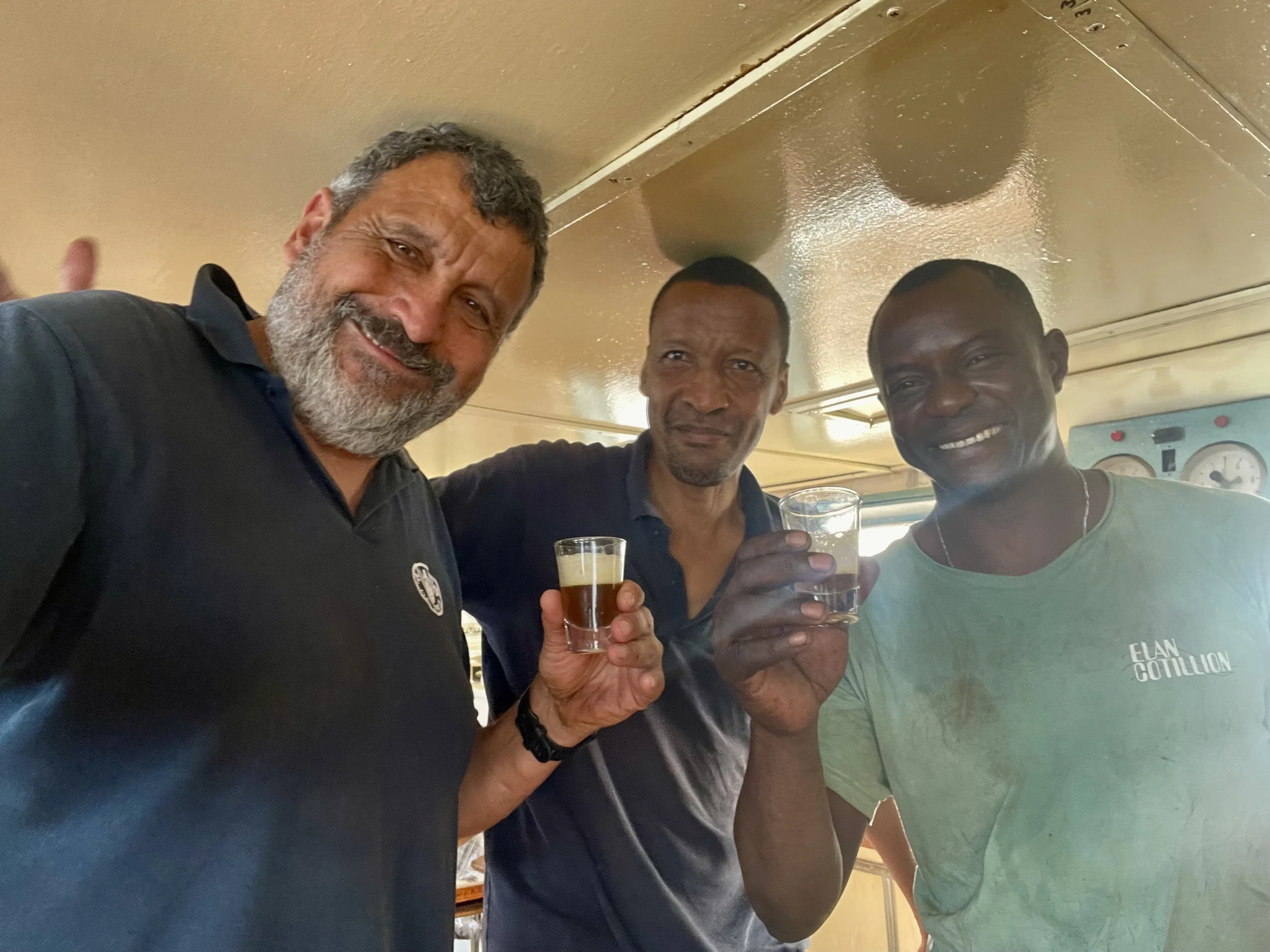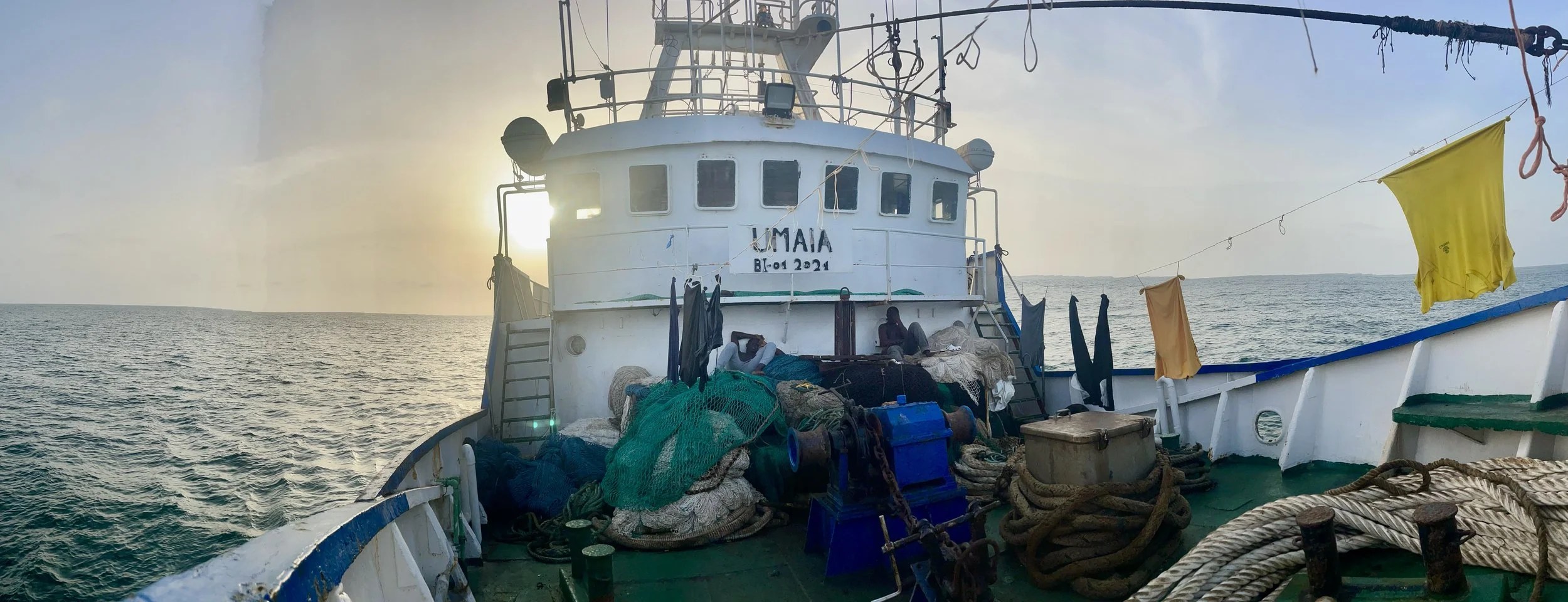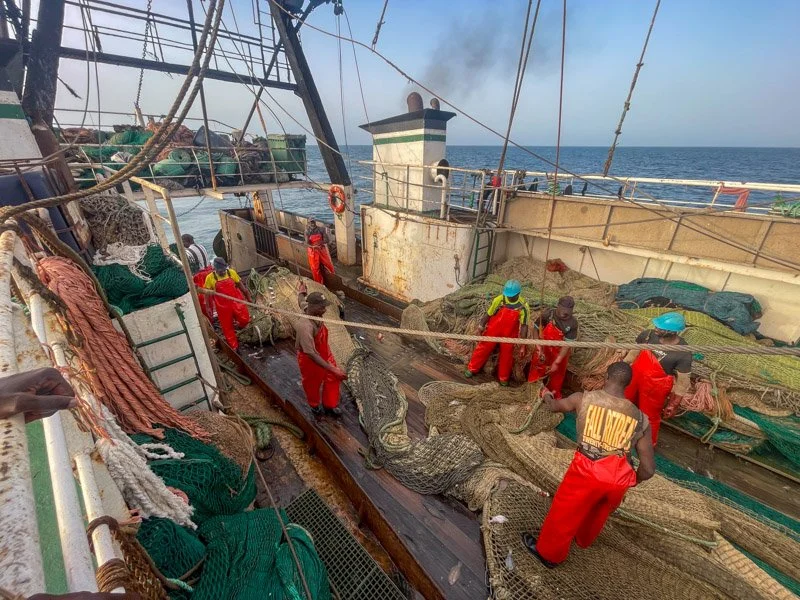A friend and colleague questioned why, at this point in my career, nearly 60 years old and with a family, I would take the risk of boarding a 40-year-old trawler 75 miles out at sea in an open dinghy without a functioning radio and relying solely on my phone's GPS for navigation.
And to be honest, I don’t know why. I guess I should think more about what could go wrong—I rarely do.
In any case, this aligns with my personal principles, as most capacity-building programs around compliance only take place in the authorities' offices. I am unaware of any individual who develops systems and provides training to those on the board of fishing boats responsible for compliance. Therefore, we should also be on board fishing boats if we work in offices and upscale hotel meeting rooms. That is fair.
I'm back working in Guinea-Bissau and lucky to be known as a specialist on both sides of the EU compliance requirements: the sanitary and IUU Catch certifications. (I wrote a booklet explaining both over ten years ago. Let me know if anyone wants to pay me to update!). On top of that, there aren’t many Portuguese-speaking consultants around!
But then I’m also aware that I’m quite lucky to have been a fisherman before a scientist and then a consultant; hence, nothing on the technical side of what I’m doing is new to me.
Finally, I'm here because I've never done anything like this before. I have never fished in these parts of the world, let alone on an exclusively African crewed boat. The crew of 27 is a mixture of Mauritanian, Senegalese, and Guinean-Bissauans.
Additionally, I was unaware that I would be working with Muslim crew members. As a result, the boat operates around prayer times, and alcohol and smoking are not part of the reality on board, something new to me.
Said, the skipper of Mauritania, and Hasan, the chief officer from Senegal, assigned me a cabin in the officers' deck, an honour in itself. I think this was more out of respect for my age than my role. By ten years, I was the oldest person on board, which seemed to command respect from everyone.
I suppose they were intrigued initially by me, but once they realised that it wasn’t my first time in a boat, they were at ease… so much so that on my second day, while I was on the bridge and prayer time came, I offered Said to keep an eye on the boat and the trawl.
He was thankful, as he could then pray with the others. From then on, I did the job at least four times a day (I did not do the 5 a.m.). Every day at around 7 p.m., he would make the call to pray over the speaker system, as an Iman would do back on land. Honestly, it was such a unique experience for me on a fishing boat. When you live in a small community like this boat, you can see the reality of what Islam means to their faithful. That has always been my experience every time I worked in Islamic societies: show appreciation and respect, and you get that back… no matter what religion (or lack of) you are.
التاي at-tāy on board… amazing
All the crew members are so polite and respectful of each other, and they work harder than most. Catch rates are so low that these guys do 8-9 trawls daily. Each trawl takes around 2 hours and is at a shallow depth (50 to 70m), so turnaround is fast… these guys make a massive effort. They take a break for an hour between packing the fish, placing them in the tunnels, and the subsequent winching of the net.
Most communications between nationalities use a mixture of French, Portuguese, Spanish (most of them worked in Spanish boats or in Spain itself), Arabic and Senegalese Creole (no English at all).
The lack of screaming and shouting on board compared to other ships struck me the most. They all know exactly what to do and work as a ballet team in total synchronicity. The captain just signals the times of the setting with the siren call (one short) and the retrieval (three shorts).
Everyone arrives on deck to take their positions and begins their work without delay. When everyone is in place, the deck boss starts the routine, and no instructions are necessary. In the few inevitable mishaps I’ve seen, the right person knew what to do at the exact time.
I always maintained that fishing manoeuvres are perhaps the roughest form of choreography in existence; everyone has a different task, on a highly sequenced process, where if one fucks up, another one gets hurt… It's as simple as that, so it's essential to understand your role and avoid slacking.
Not that it is all roses… this is an old boat that would have been broken apart back in Spain, where it was made in the early 80s; very basic electronics, no internet, and is entirely run down on the processing side (so substantial maintenance is needed if they want to export to the EU), also is entirely infested with cockroaches (has been a while since I spend time in in the morning looking at my bed sheet to see if I did not squash them one overnight)… this latest is also going to be a problem with the EU. The winches are old school hydraulics, so the whole boat shakes and grudges when the net comes up (which is very often); there are four toilets for 28 (27 plus me) people, and so on… yet it is suitable for everyone else is also good for me.
But in hindsight, I was also keen to do the trip… I had been quite frustrated around my work on labour rights in general, and with the WCPFC Draft CMM in particular, and this is my way of reminding myself where I come from, how much privilege I have in my life, and how much I take for granted by being part European and educated…
Of course, I’m not blind to commercial fisheries' many social and environmental problems or the fact that some really shady characters exist. Yet the real shady ones for me are in desks and offices that manage vessels.
I’ll have any of the 27 men in this boat as my guest at home, and so with the 95% of the people I worked with in fishing boats since 1983… that is the reason why I get so angry at the shameless criminalisation of fishers worldwide, particularly now with the framing of maritime domain crimes as a fisheries issue… somehow if you are a fisherman, by de facto, you are a drug, guns, and people’s dealer… and, of course, fisheries observer’s assassins.
The people I fished in this boat represent those in every fishing boat. The overwhelming majority of them are really good people doing the best they can to feed themselves and their loved ones with the limited set of cards life gave them… while at the same time working to feed others!
And every fisherman on board any boat when you are reading this is why the fishing industry exists!
It is not the RFMOS, the national lobbies, the government bilateral deals, the seafood expos, the fisheries forums, or the international organisations. Fishing will survive without any or all of these institutions and their geopolitics… but not without fishers.
And this trip in a West African trawler, one of the fisheries with the worst “fame” in the world, with one of the most welcoming crews I have ever experienced, was nothing more than revealing and an enlightening experience for me… a reminder of how much shit is being talked about fisherman by surelly well-intended people, but that have never experienced fishing by themselves.
I will treasure this experience for the rest of my life.
Hence, I understand something that Ricardo (the senior fisheries observer on board, so I know that, to an extent, he can choose his trips) told me while we were looking at a big new Chinese trawler passing by our starboard with mid-water nets. I said it looked like a nice new boat, and he said it was… “I did my first trip there after their licensing…. It is very modern, and I had my own cabin.”
So I asked him why he had chosen to come to this boat. He smiled and said, “This is an African boat.”








